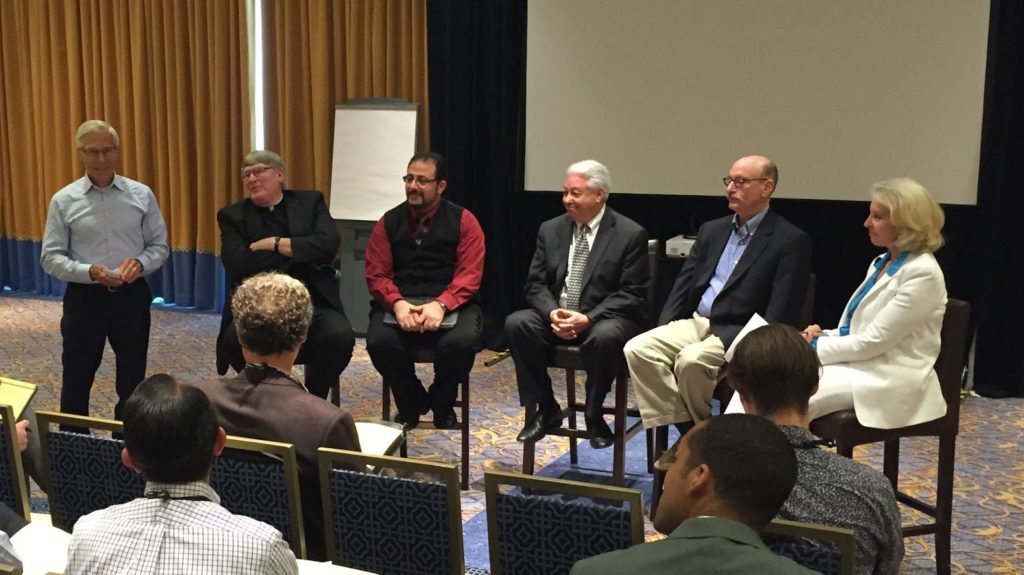
What common ground can a rabbi, an imam, a priest, and a minister find about philanthropy especially when the conversation is moderated by Washington Post super journalist, Sally Quinn? As it turns out – a lot.
The question posed to this 2015 Bridge Conference panel of clergy representing three of the world's great religions, Islam, Judaism and Christianity, was "What impact does faith have on philanthropy?"
The tone of the panel discussion boiled down to three words or phrases:
*Common ancestry
*Grace
*Giving as a sacred act
The Power of a Common Heritage: Rabbi Danny Zemel, Temple Micah, pointed out that Judaism, the root faith for both Islam and Christianity, encouraged giving more than 4,000 years ago. In fact, "tzedakah" refers to teaching Jews the obligation, not choice but obligation, to give. Imam Yahya Hendi, Chaplain at Georgetown University, shared Islamic tradition that uses similar words, "zakat" and "sadaqa" that traces back to a powerful and timeless directive: "And remember we took a covenant from the Children of Israel (to this effect): Worship none but Allah; treat with kindness your parents and kindred, and orphans and those in need; speak fair to the people; be steadfast in prayer; and practice regular charity.”
Grace: "Grace" for Jews and Christians is that unmerited, unearned favor that gives us the ability to do good works, including philanthropy. Muslims also hold that our power to do good works is because of God's grace. What better example is there to describe grace than the panelists’ conversation around the question of whether they would support each other's causes. It was here that Mgsr. John Enzler, CEO of Catholic Charities, pointed out the generosity all faiths, Catholics, Muslims and Jews in providing financial and spiritual support to the National Cathedral after it suffered a devastating earthquake in August 2011.
The Sacred Act of Giving: The Rev. Dr. Dennis Perry, a United Methodist clergyman, reminded all that when we do those things that exemplify the best of life, the highest values of life, we call them "sacred" or "holy". Those are labels that elevate an action to the level of the divine. Philanthropy, giving, is just such an "elevator,” for when we give, when we favor others with love, we are emulating the best, the highest, the holy.
As we seek to raise philanthropic funds for our various nonprofits, it is helpful to keep in mind the various motivations that people have to give which may include (or not) philanthropy as an extension of their faith.
Our Guest Blogger today is John Wm. Thomas, my co-convener of this session at The Bridge Conference; retired as COO of Children's Hospital Foundation in 2008 and now consults for non-profits nationally and regionally.